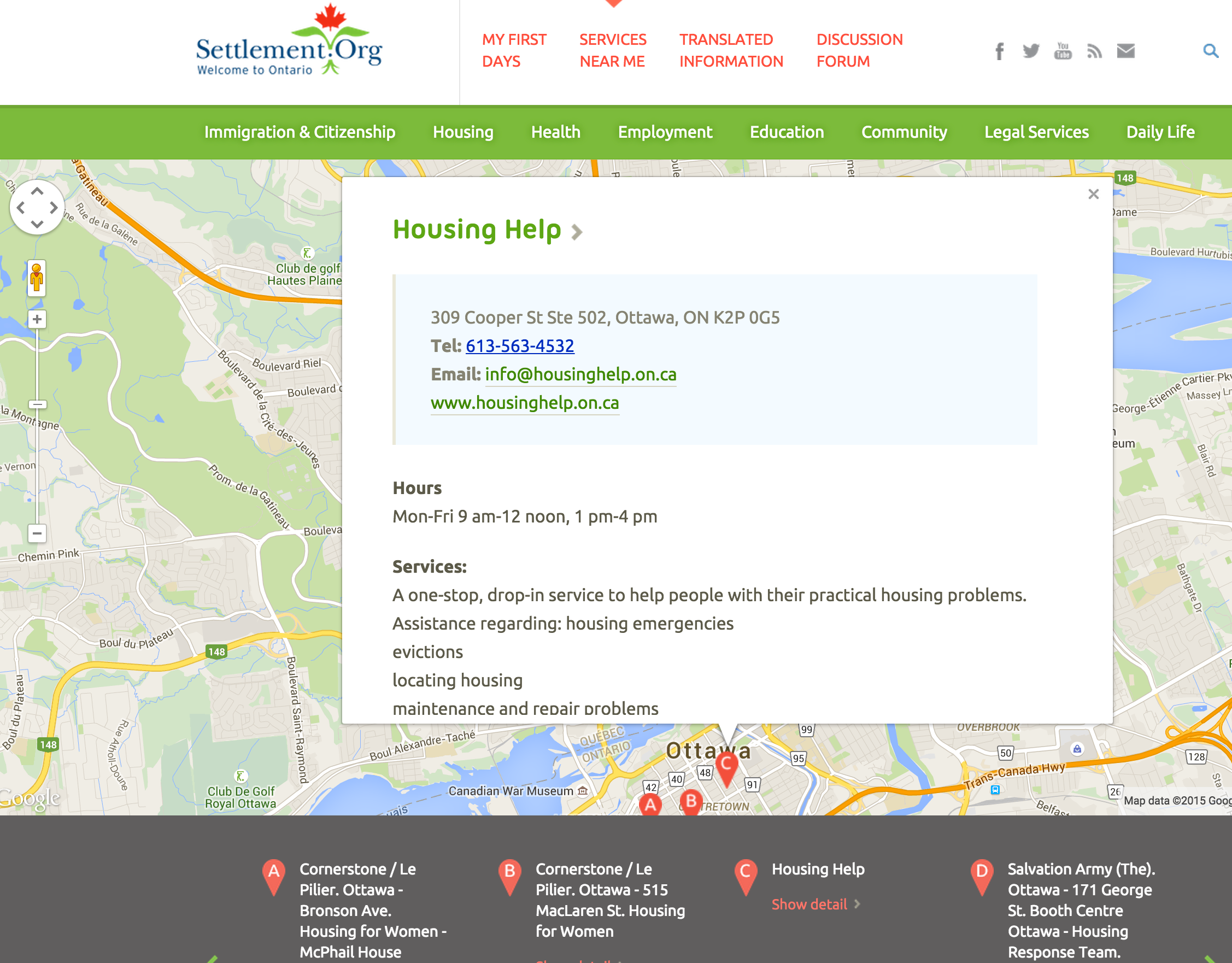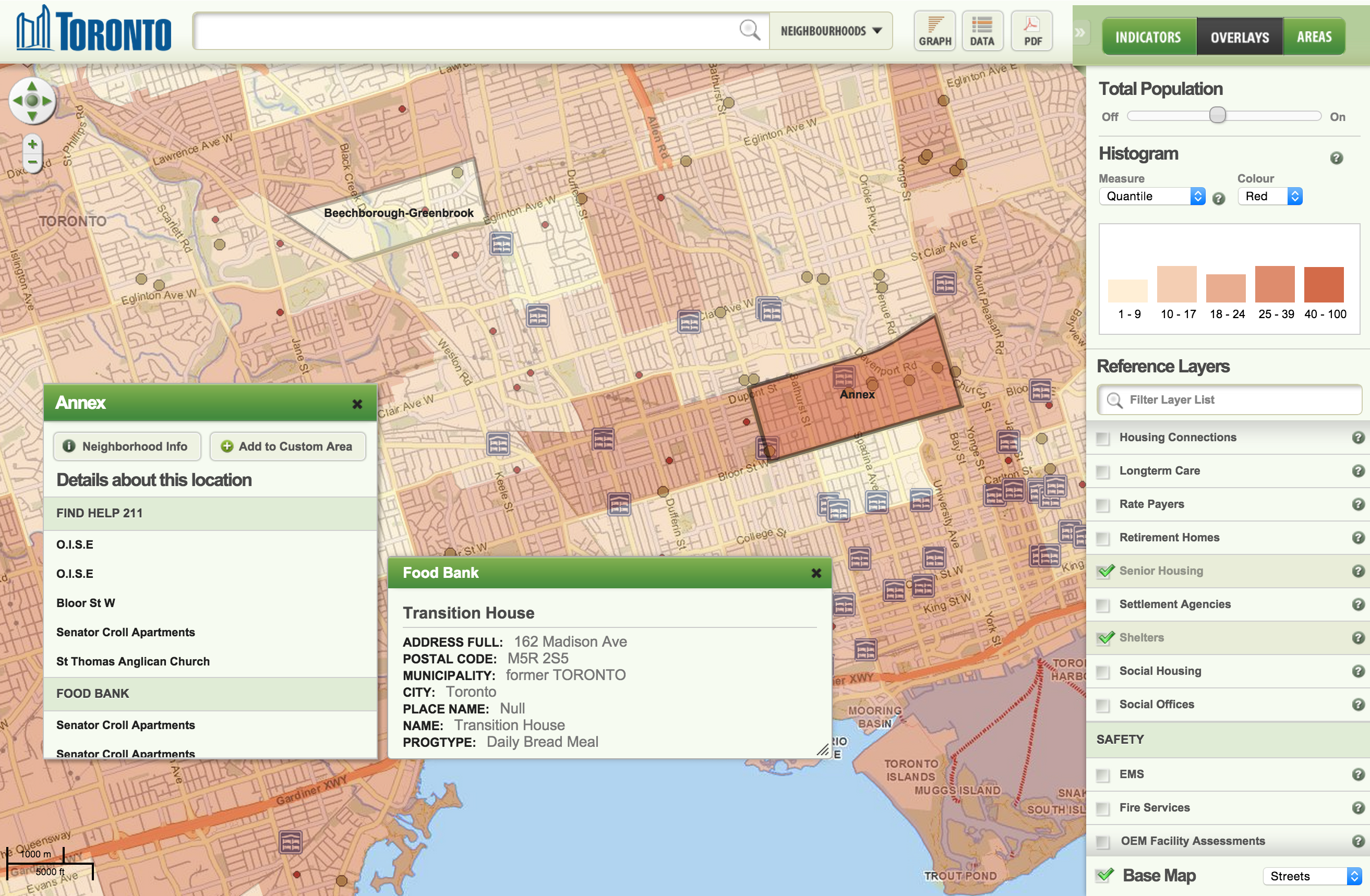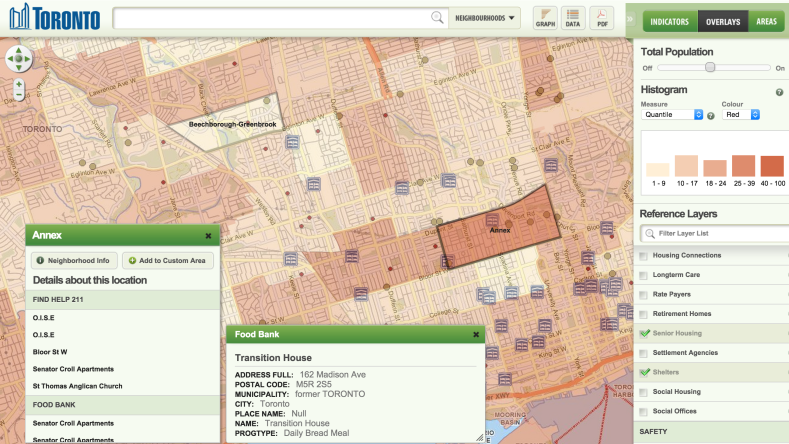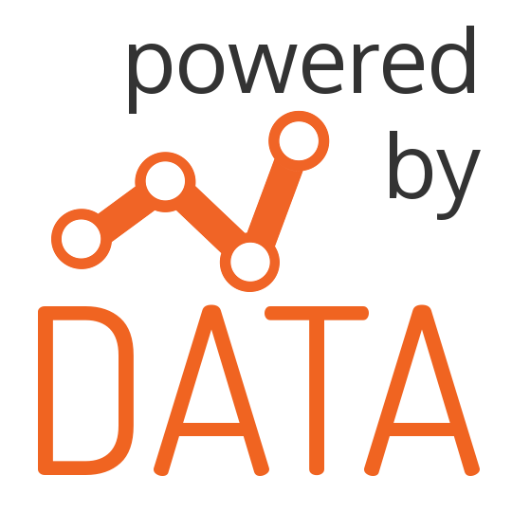[UPDATE: The Ontario Non-Profit Network has posted its ‘Data Strategy,’ which specifically references the emerging partnerships described below. Check it out!]
Canada is an international leader in the field of open data, especially in the non-profit sector. The Canadian Revenue Agency was the first government entity of its kind to publish open, machine-readable data about the charity sector, including every gift made by foundations and charitable funds. Above and beyond this step, Canada’s open data portals — local, provincial, and federal — have been publishing vast amounts of data, including directory information about human services.
This is why it’s especially exciting to announce our new partnership between PoweredbyData and Open Referral. (See PoweredbyData’s announcement here.)
Thanks in part to the advocacy efforts of PoweredbyData, the Canadian philanthropic sector is starting to follow the government’s lead and publishing data about their own grantmaking programs in standardized open formats. (You can see the fruits of this work on Ajah.ca and at their new Landscape tool— which is demonstrating how valuable non-profit financial data can be when made available in an easily-reusable format.)

PoweredbyData is now advocating for the opening and standardization of human service directory data as a critical next step in the development of Canada’s open data ecosystem.
As it happens, Canada is a leader in this field, too: the information-and-referral sector — especially in Ontario — appears to be one of the most sophisticated around.
Over the past decade, Ontario’s I&R providers have worked together to develop a federated data system in which community resource directory data is produced by more than 40 local organizations, and subsequently aggregated into Ontario 211’s provincial system.
Recently, Ontario 211 has begun taking the next steps: evolving into an open platform. Ontario 211, in fact, was the first 2-1-1 anywhere to develop an Open211 API.
This hard work is already paying off, with innovations in service discovery through partnerships such as Settlement.org, which produced by the Ontario Council of Agencies Servicing Immigrants. Settlement.org is — as far as I am aware — the first example of ‘2-1-1 as a platform.’ That is to say, the site is designed specifically for a particular type of user (immigrants), and — among other valuable information for such users — it delivers service directory data via Ontario Open211 API.

For another great example of integration between 2-1-1 resource directories and other critical local data, consider the Wellbeing Toronto project, which allows critical services to be visualized right alongside health indicators and other information that is valuable to community planners, policy wonks, and other decison-makers.

We’re pleased to share with you here that Ontario 211 will begin testing the publication of their resource database (which spans the entire province) in the Human Service Data Specification (aka the Open Referral format) over the course of the summer. This will pose a unique opportunity for public and civic initiatives — in the information-and-referral sector and beyond — to experiment with innovative new ways to share and deliver resource data for service delivery, research and analysis.
Members of Ontario’s information-and-referral community have been helpful advisors to the Open Referral initiative over the past year. (In some important ways, they’ve already done work and learned lessons that we hope to spread to many other communities in turn.)
Given this leadership, and our partnership with PoweredByData, we look forward to seeing many great demonstrations of the many valuable uses of open resource data in Ontario and all across Canada over the years to come.




Leave a Reply